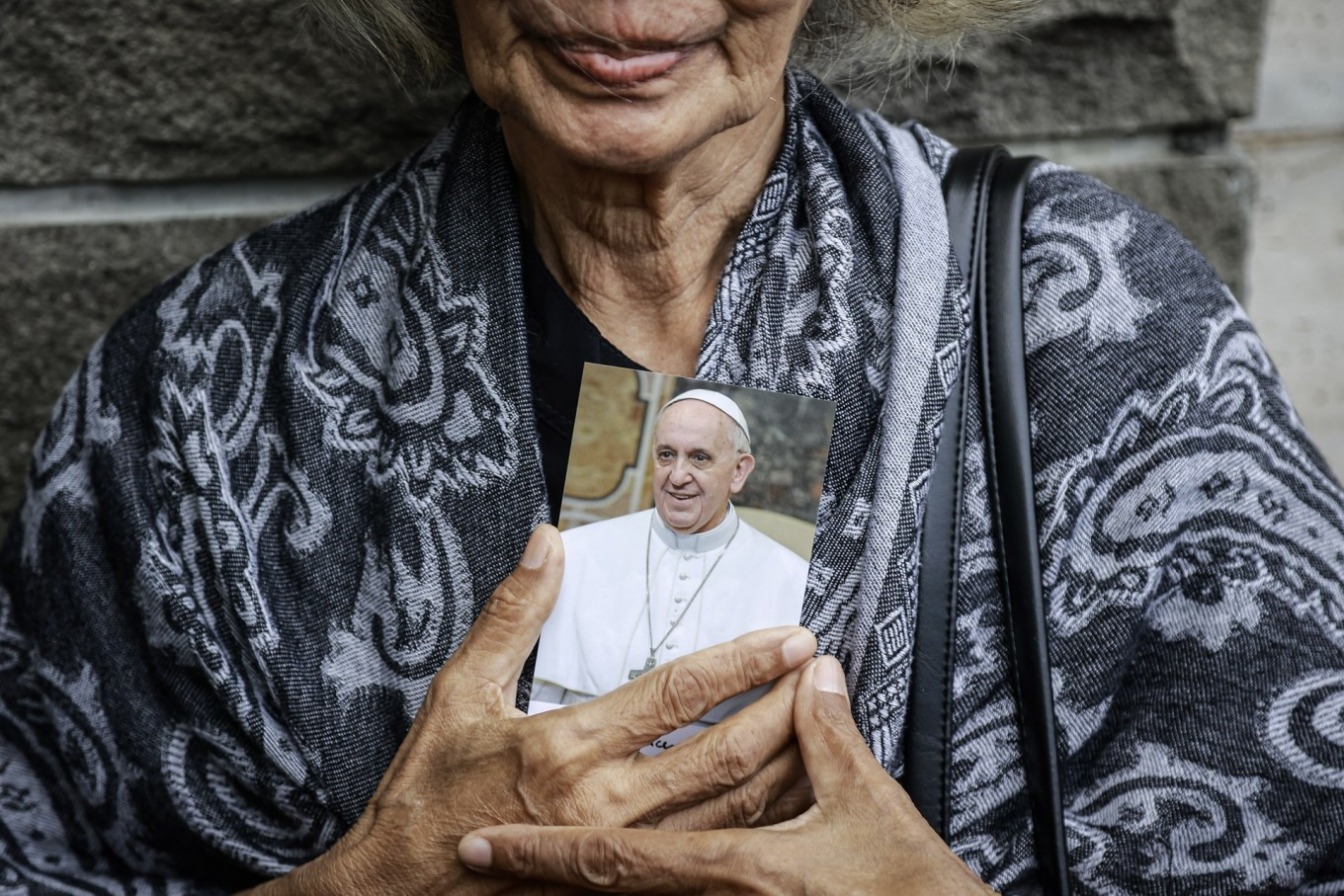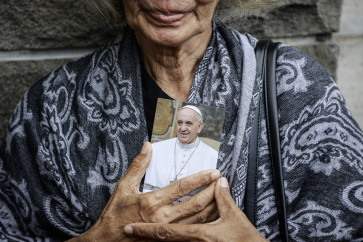Popular Reads
Top Results
Can't find what you're looking for?
View all search resultsPopular Reads
Top Results
Can't find what you're looking for?
View all search resultsAnalysis: Pope Francis' legacy lives on in Indonesia
Change text size
Gift Premium Articles
to Anyone
T
he passing of Pope Francis on April 21 has struck the global community to its core. From the outset of his papacy, Francis made a difference. He was a man of many firsts: the first Jesuit pontiff, the first Latin American pope, and the first pope born outside of Europe since the 8th century. Born Jorge Mario Bergoglio, he chose the Latin name Francis for his pontificate in honor of Saint Francis of Assisi, the 13th-century Italian friar who, in his words, was a man of poverty and peace “who loves and protects creation”.
He lived up to these values throughout his papacy in his commitment to building bridges, not walls. Pope Francis championed the marginalized and strongly advocated for the environment, urging global collective action against climate change. In his final public address on Easter Sunday, Francis called for greater humanitarian attention to the Palestinian people as well as the Christian community in the Gaza Strip and a long-standing ceasefire in Gaza, denouncing the bloodshed he once described bluntly as “cruelty”, not war.
With his passing, 133 cardinals are set to enter into a conclave on May 7 to elect a new pope as the next face of the Church, representing 1.4 billion followers worldwide. Indonesian cardinal Ignatius Suharyo Hardjoatmodjo is among those eligible to join the papal election, where a candidate needs a two-thirds supermajority to become the next head of the Holy See.
Many citizens of the world’s largest Muslim-majority country have expressed delight at the prospect of Suharyo leading the Church. However, the Indonesian cardinal has dispelled any talk of personal ambition, saying it was “foolish” for anyone to aspire to the papacy.
Meanwhile, his Southeast Asian counterpart, Philippine cardinal Luis Antonio Tagle, is being touted as a front-runner in the upcoming conclave. Known as an excellent communicator with great charisma, if elected, Tagle would become not only the first Asian pope but also Francis’s ideological successor. The Philippine cardinal holds progressive values similar to those of Francis, emphasizing inclusion in the Church, social justice, and a strong ecological stance.
Even if Suharyo has minimal odds of being elected pope, Francis’s teachings continue to live on through the Bishops' Conference of Indonesia (KWI), which represents more than 8 million Catholics in the country. Suharyo was himself appointed cardinal by Pope Francis in 2019, making him one of the most visible proponents of Francis’ legacy.
The Indonesian church’s commitment to values similar to Francis’s is best seen in its stance on the infamous mining law passed early this year, which granted non-state institutions, including universities and religious organizations, the right to mine resources and profit from mining activities. The KWI was among the several faith-based institutions to reject the new mining law, arguing that the mining sector does not fall within the Church’s domain.



















